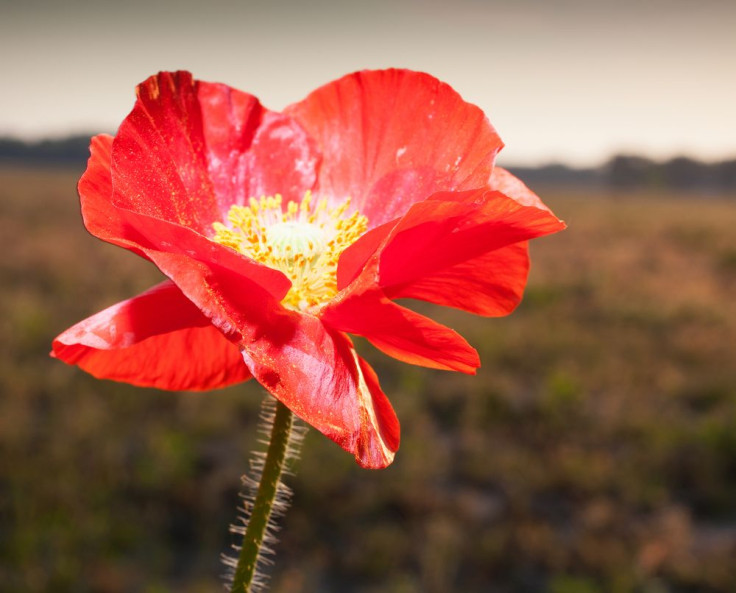Poppy Gene Discovery Could Lead To 'Home Brew' Morphine: The Pros And Cons Of Manufacturing Opiates

Scientists have identified the last step needed to synthesize opiates: a gene in the poppy plant known as STORR. The discovery confirms that’s it’s only a matter of time before researchers will be able to manufacture opiate-based drugs from scratch. While the researchers are excited about the pharmaceutical potential that such a feat would bring, they also acknowledge that their breakthrough could pave the way for the creation of illicit “home-brewed” narcotics.
In a study published in the journal Science, a team of scientists based in England and Australia announced the discovery of STORR, a gene that helps poppy plants produce opiates — the chemical needed to create drugs such as heroin and codeine. The gene was discovered by introducing random mutations into a number of poppy plants and studying the outcome. As reported by TechTimes, three plants stood out from the rest and, upon closer examination, were found to all share the same gene mutation.
In a study published last month, a team of University of California, Berkeley-based scientists announced the progress they had made in their effort to turn sugar into morphine using genetically engineered yeast. Building on this research, the discovery of the STORR gene is believed to be the final step needed to make this theory a reality.
"The publication of this gene provides the missing link for the production of morphine in yeast — there's no doubt about it," Ian Graham senior author of the research behind STORR’s discovery explained, as reported by the LA Times. "I think it's only a matter of time before there is a proof-of-concept demonstration in yeast that this can happen."
Benefits Of Making Opiates
Opiates remain the most widely prescribed form of prescription medication in the United States. Being able to create the drug in a laboratory means that scientists could potentially fine-tune pain medications to be both safer and more effective. The team is currently working on breeding poppies to produce anticancer agents and pain medications specifically designed for patients.
"Now that we've discovered this step, we can develop poppy plants and use breeding approaches to make bespoke varieties of poppies that make different molecules," Graham explained, the LA Times reported.
Opiates are also the most widely abused form of prescription medications in the U.S. According to the National Institute on Drug Abuse, over two million people in the U.S. suffer from substance abuse disorders related to prescription opioid pain relievers, and deaths from opioid drugs exceed all illegal drugs. Manufacturing opiates could help to address this problem. According to John Dueber, a researcher involved with the UC Berkeley study, by bypassing processes that turn opium into morphine, synthetic painkillers could be engineered to be less addictive, Wired reported.
Dawn Of Home-brewed Heroin?
Unfortunately, the ability to manufacture opiates from scratch will most likely be utilized by those in the illicit drug trade. Such a breakthough could make it easier for people to make their own morphine and open the doors to “home-brewed” heroin. Although Dueber emphasized that the process would require conditions and equipment not available to the everyday individual, he did recognize the potential for abuse.
"An additional concern is that once the knowledge of how to create an opiate-producing strain is out there, anyone trained in basic molecular biology could theoretically build it,” Dueber explained in a press release.
The Drug Enforcement Administration is already on top of any new developments in this area. Jeff Comparin, the director of the DEA’s laboratory in Dulles, Va., explained that at the moment the DEA “doesn’t perceive an imminent threat” but will be prepared to act if and when home-brewed heroin does become a reality.
Source: Graham IA, Winzer T, Kern M, et al. Morphinan biosynthesis in opium poppy requires a P450-oxidoreductase fusion protein. Science. 2015.
Published by Medicaldaily.com



























